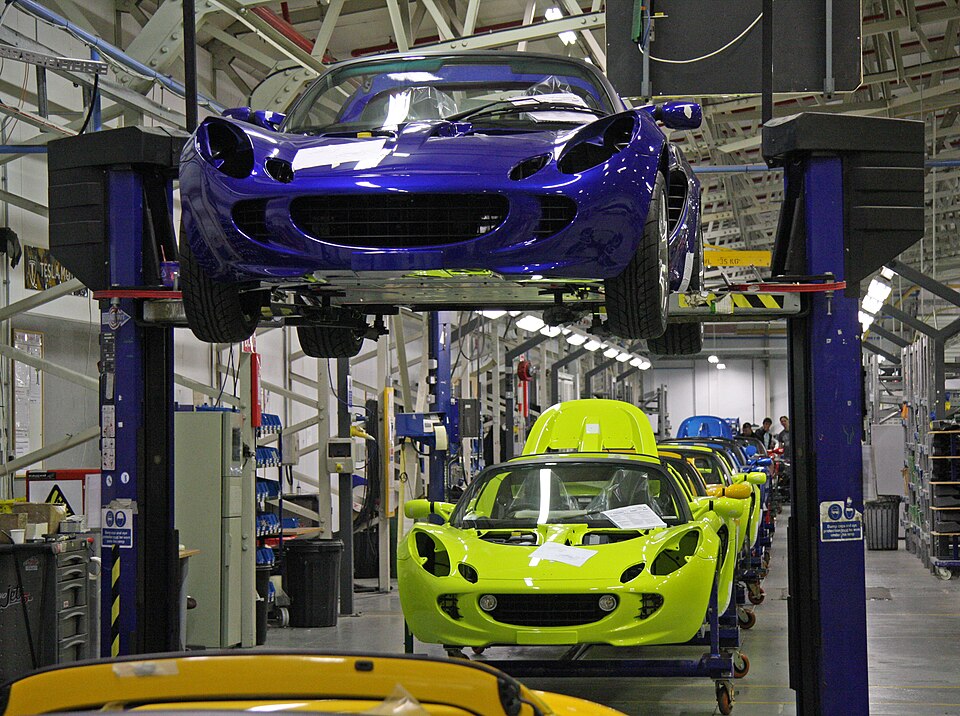
Car manufacturing in the UK dropped sharply last month, hitting its lowest April output in over 70 years—excluding 2020, when the Covid pandemic brought production to a standstill.
According to the Society of Motor Manufacturers and Traders (SMMT), just 59,203 vehicles were produced in April, marking a 16% year-on-year decline and a 25% drop from March. This slump was driven by several factors, including Easter falling in April—reducing working days—alongside the impact of US tariffs and ongoing industry changes.
Tariffs and trade disruptions
One major contributor was the push to ship more cars to the US in March, ahead of President Trump’s 25% tariffs on steel, aluminium, and vehicles. Although a US court has recently blocked several of those tariffs, the duties on cars remain in effect.
Jaguar Land Rover (JLR) said it is currently paying a steep 27.5% tariff on vehicles shipped to the US, calling it a significant financial burden. The company exports cars from its UK operations to its US division, meaning it incurs both export and import duties. JLR also expressed frustration at delays in implementing a new UK-US trade agreement, which would cut tariffs to 10% for up to 100,000 vehicles annually.
Electric vehicle transition slows output
The SMMT also noted that the automotive industry’s transition from petrol to electric vehicles (EVs) is temporarily depressing output. Policy uncertainty around EV manufacturing in the UK has made matters worse. In April, the UK government announced a relaxation of EV sales targets and lower fines for exceeding emissions standards—moves that critics say send mixed signals to manufacturers.
Global context, local impact
The drop in UK production mirrors trends in other major car-producing nations. “There are concerns in Germany, Italy, France, and Japan,” said Professor Peter Wells of Cardiff University’s Centre for Automotive Industry Research. However, he added that the UK faces unique pressures, such as fewer restrictions on Chinese car imports and inconsistent EV policy.
So far this year, UK vehicle production is at its lowest point since 2009. Export volumes in April fell 10.1%, mainly due to weakened demand from the US and EU—Britain’s top export markets. Meanwhile, domestic production also declined, though more modestly, by 3.3%.
Market resilience and future outlook
Despite declining production, UK car sales remain strong. Nathan Coe, CEO of Autotrader, noted that domestic new and used car sales are up, though exporters are bearing the brunt of international trade friction.
“The UK is still an attractive market for global automakers,” Coe said, especially as selling into the US becomes more costly.
Autotrader's stock dropped 12% on Thursday, despite a 5% increase in sales, as the company warned of continued economic uncertainty.
Looking ahead, the SMMT expressed cautious optimism that new trade deals with the US, EU, and India could help reverse the downward trend in production. Still, experts stress the need for policy stability.
“Industry craves clarity—on tariffs, electrification, and everything else,” said Prof Wells. “Right now, it’s still a volatile environment.” Photo by Brian Snelson, Wikimedia commons.


































